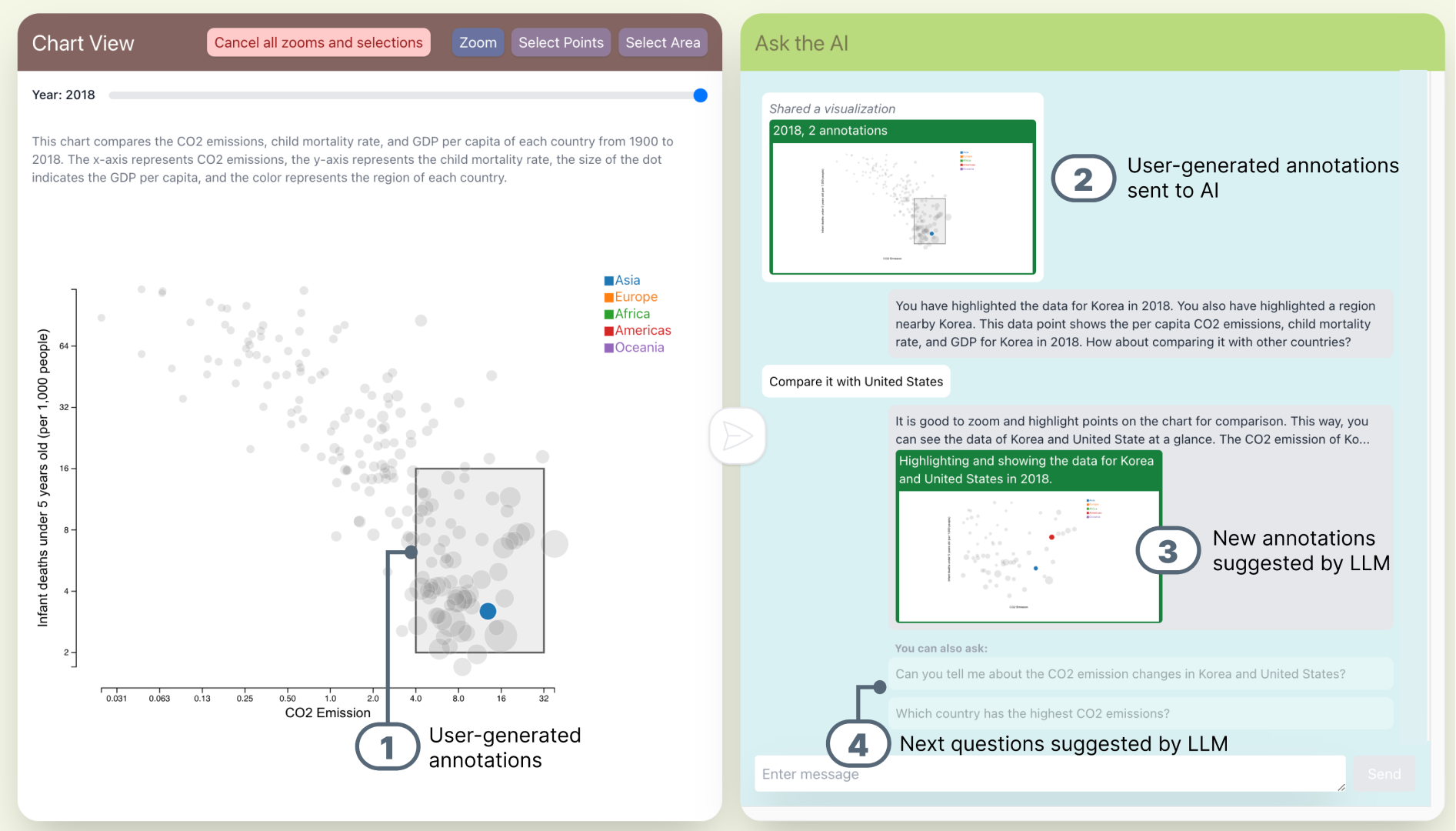Enhancing Data Literacy On-demand: LLMs as Guides for Novices in Chart Interpretation
Kiroong Choe -
Chaerin Lee -
Soohyun Lee -
Jiwon Song -
Aeri Cho -
Nam Wook Kim -
Jinwook Seo -
Screen-reader Accessible PDF
DOI: 10.1109/TVCG.2024.3413195
Room: Bayshore I + II + III
2024-10-18T12:30:00ZGMT-0600Change your timezone on the schedule page
2024-10-18T12:30:00Z

Fast forward
Full Video
Keywords
Visualization literacy, Large language model, Visual communication
Abstract
With the growing complexity and volume of data, visualizations have become more intricate, often requiring advanced techniques to convey insights. These complex charts are prevalent in everyday life, and individuals who lack knowledge in data visualization may find them challenging to understand. This paper investigates using Large Language Models (LLMs) to help users with low data literacy understand complex visualizations. While previous studies focus on text interactions with users, we noticed that visual cues are also critical for interpreting charts. We introduce an LLM application that supports both text and visual interaction for guiding chart interpretation. Our study with 26 participants revealed that the in-situ support effectively assisted users in interpreting charts and enhanced learning by addressing specific chart-related questions and encouraging further exploration. Visual communication allowed participants to convey their interests straightforwardly, eliminating the need for textual descriptions. However, the LLM assistance led users to engage less with the system, resulting in fewer insights from the visualizations. This suggests that users, particularly those with lower data literacy and motivation, may have over-relied on the LLM agent. We discuss opportunities for deploying LLMs to enhance visualization literacy while emphasizing the need for a balanced approach.